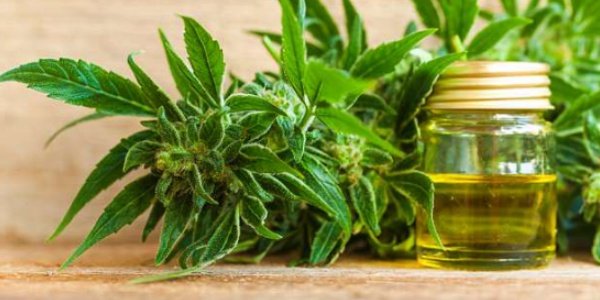Is CBD Oil Halal or Haram?
It seems that CBD oil seems to be everywhere at the moment and everyone on social media is singing its praises claiming it to be the cure for just about everything going. Particularly, as it’s now so easy to get CBD online, people really do think it’s helping them. But let’s take a look at what it consists of and is CBD oil Halal or Haram?
CBD oil is typically extracted from the resin glands on cannabis (marijuana) buds and flowers. It can also be extracted from hemp, which is an industrial, fibrous form of cannabis that has small buds and a tetrahydrocannabinol, or THC, concentration of 0.3% or less (THC is the chemical compound that’s responsible for making people high). It’s usually diluted with another type of oil, like MCT oil.
So, there are two main types of CBD oil available. One which contains THC – a product that can get you high – and one without. Currently in the UK any CBD oil containing THC is banned thus, more and more people over here, including researchers and healthcare providers, are claiming that CBD is entirely safe to use, by both adults and children so we will focus on the non-THC, legal form of CBD oil.
Benefits of CBD
There are a lot of misconceptions among the general public when it comes to CBD Oil. First off, what CBD is NOT: It’s not marijuana. It’s not THC (the part of cannabis responsible for causing a “high.”), and it’s non-psychoactive.
CBD has been reported to have many positive results. Scientists are looking into how it helps with medical applications like epilepsy, multiple sclerosis, spasms, anxiety disorders, bipolar disorder, schizophrenia, nausea, convulsions, inflammation, and many other conditions, including cancer.
However, the effectiveness of CBD and the above conditions has not yet been scientifically proven and many of these studies are still in a pre-clinical stage. What is known with high certainty is that CBD has been effective for decreasing anxiety and many inflammation-related problems, included arthritis as well as multiple sclerosis.
CBD has also been proven to inhibit the growth of MRSA bacterium (a strain of staphylococcus resistant to antibiotics), which causes several difficult-to-treat infections. As a chemical substance, CBD also has strong antioxidant properties.
Because the effects of CBD is still under study, it is suggested for you to do your own research before using CBD in your daily life. There are also some possible side effects of cannabidiol, but many people believe that most of the effects are positive. These are some of the more common claimed benefits of CBD oil:
Anti-Seizure: Studies have shown Cannabidiol to have anti-seizure qualities in animal models. Case studies and user testimonials also show CBD as a potential treatment for drug-resistant epilepsy in children.
Anti-Inflammatory: CBD is an anti-inflammatory and may help with pain associated with arthritis and scoliosis as well as general aches and soreness.
Neuroprotectant / Anti-oxidant: Research also shows Cannabidiol is an anti-oxident and has neuroprotective properties that may help prevent or treat neurodegenerative diseases such as Alzheimer’s, multiple sclerosis and Parkinson’s disease.
Anti-Anxiety: CBD reduces both mental and physical measures of stress and anxiety in both animal models and humans. As well as treating anxiety, CBD also improves the ability to forget traumatic memories making it an enticing potential treatment of PTSD.
Substance Abuse: Early findings show the possibilities of Cannabidiol in the treatment for substance abuse. Research shows the reduction of opiate induced rewards and compulsions in animal models. More studies are needed regarding these effects in humans.
Anti-emetic: Cannabidiol has been shown to decrease nausea and vomiting in case studies.
How to take CBD oil?
Swallow and Ingest: Perhaps the most common way to take CBD is simply to swallow pure CBD oil. When you ingest CBD oil, it passes through the digestive system and is metabolized by the liver, eventually delivering its active compounds to your bloodstream. CBD oil can be purchased in capsule form for this.
Hold CBD under your tongue: Another popular method for taking CBD is to apply and hold it under the tongue so that the mucus membranes in the mouth can absorb CBD and the other active compounds found in CBD oil. This sublingual application offers faster delivery, because the CBD and hemp oil’s other natural constituents get to bypass the digestive system and metabolization by the liver.
Vape CBD: As vaping has grown in popularity among health-conscious consumers CBD can also be taken this way. Vaping offers a lung-friendly method for inhaling CBD oil, allowing CBD and other trace cannabinoids to be absorbed through the lung’s large absorptive surface area before they’re diffused into the bloodstream.
Chewing CBD gum: There’s likely not a more enjoyable way to get your daily CBD than by chewing a piece of CBD gum. Pop in a piece after your morning cup of coffee or once you’ve finished lunch to freshen your breath while getting CBD.
Mix CBD with food and/or drink: Looking for a seamless method for adding CBD into your daily life? Try blending CBD into your favorite foods or drinks. Adding CBD to your already-prepared healthy foods is not just easy, but it may also improve how well the CBD is absorbed. Fatty acids found in foods can serve as carriers for cannabinoids like CBD, allowing them to move through the body for faster processing.
Rub CBD on your skin: You can apply some CBD products directly onto the skin. The CBD and other active ingredients found in topical CBD products like lotions and salves are absorbed into the skin so that they can interact with cells near the surface without entering the bloodstream. Hemp CBD oil contains CBD and many fatty acids, proteins, vitamins, and other nutrients that play a vital role in the health of your skin.
Is CBD oil the same as Hemp Seed Oil?
No, Hemp seed oil is extracted from the seeds of the hemp plant typically using a cold-press process. Hemp seeds contain as much as half of their weight in oil, which is easily extracted and commonly used as a substitute for olive oil and other cooking oils. While it has a host of beneficial uses and is full of antioxidants and healthy fats, hemp seed oil is used for its nutritional value and is not the same as CBD.
High quality CBD oil is made from the flowers of the hemp plant, not the seeds. To get the most CBD and other whole plant cannabinoids out of the plant, the hemp must be harvested while the flowers are still very small, requiring a large quantity of plant material. This is why CBD products are typically more expensive than hemp seed oil and medical marijuana but they balso contain a greater number of beneficial compounds and have more far reaching positive health benefits.
Is CBD legal in the UK?
Sales of medicinal CBD oil have shot through the roof in the last year since it was legalised in the UK.
CBD oil has been hailed as a natural saviour for everything from epilepsy to Parkinson’s disease as well as migraines, stress and cancer symptoms.
The law was changed to recognise CBD, one of the components of cannabis, as a medicine.
All products which contain CBD extract are now legally considered to be medicine instead of nutritional supplements which they had previously been known.
Any CBD product purchased in the UK is 100% legal as long as it was derived from one of the 63 EU approved industrial hemp strains.
The legalised CBD oil does not contain THC.
So, is CBD oil Halal or Haram?
In our opinion, yes it is Halal, as you are merely using a plant extract which is no different to using spices in our food such as ginger, turmeric and so on. Had we been talking about the THC element of CBD oil we would naturally advise against its use as the ‘getting high’ risk is a definite no. However, the legal form of CBD contains no traces of THC and therefore none of the addictiveness of a health affecting drug.
We do advise though, as always, to carry out your own research and due diligence. If using CBD oil doesn’t sit right with you then it isn’t for you. If you are happy in yourself to use it then by all means give it a try and see if it works for you.
To see what other CBD products are available take a look at this Halal CBD Store Here



I’ve tried both normal cbd n the naughty one by “accident”.
That’s exactly wat the latter is naughty, it’s a buzz that creeps up on u and as the legit one supposedly relaxes u the naughty one gets u para n high like everyday weed.
The legit one I tried for a bit and in all honesty didn’t do bugger all. Maybe I didn’t use it for long enough due to its price.
I’ve tried the naughty one truthfully by accident I thought it was legit. I used it as a vape, the effects ; I slowed down got bit para and had the munchies, from where I drew the conclusion that man mash up, so I tried it few more times over the period of a week Debating myself right from wrong. In my opinion U do stoned n I personally won’t b using it again
The naughty one id reckon may help a weed smoker give up but plz check with ur dealer 1st
NOT just to “carry out your own research and due diligence”, but consult with known Islamic scholars in your community.